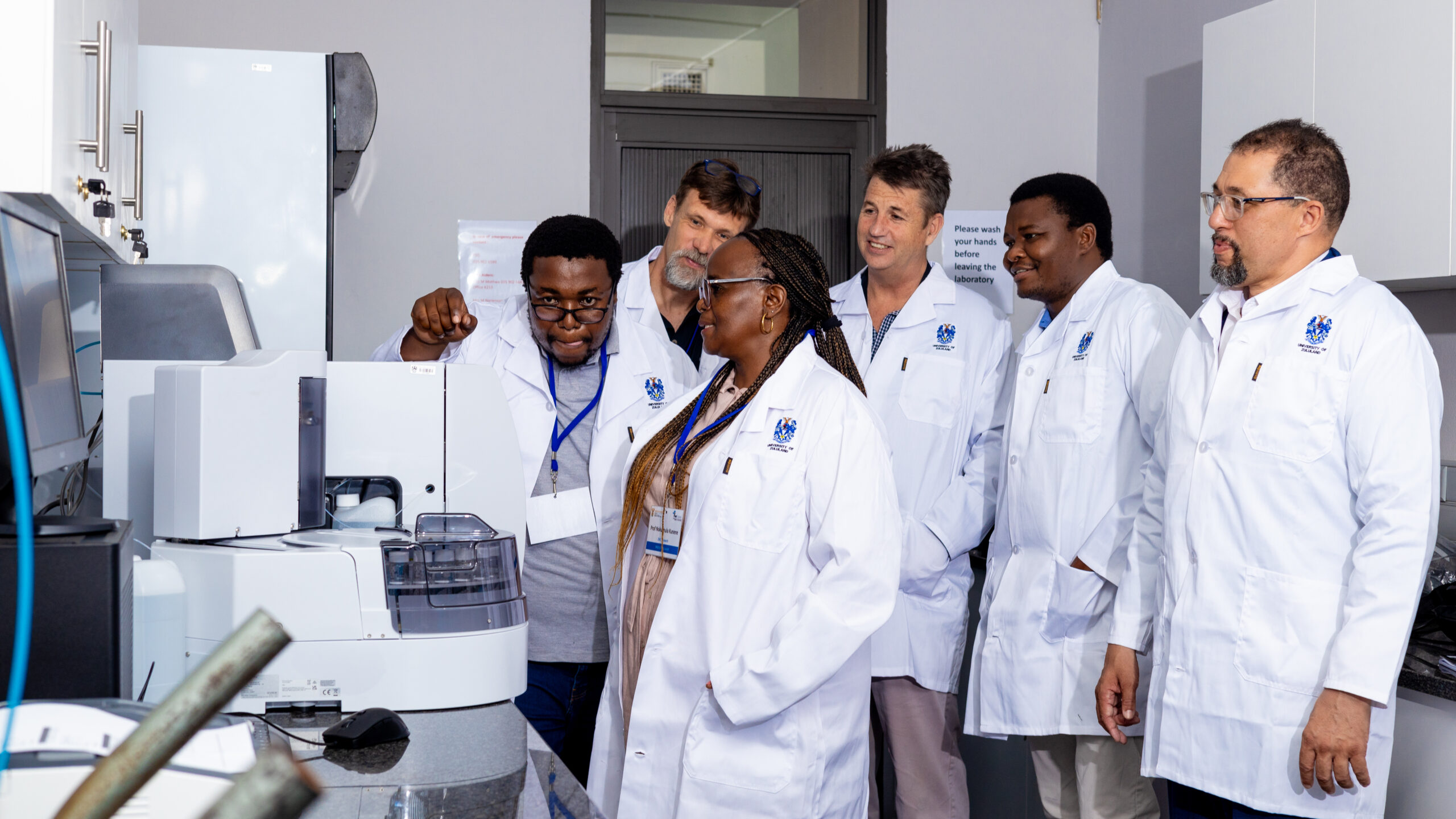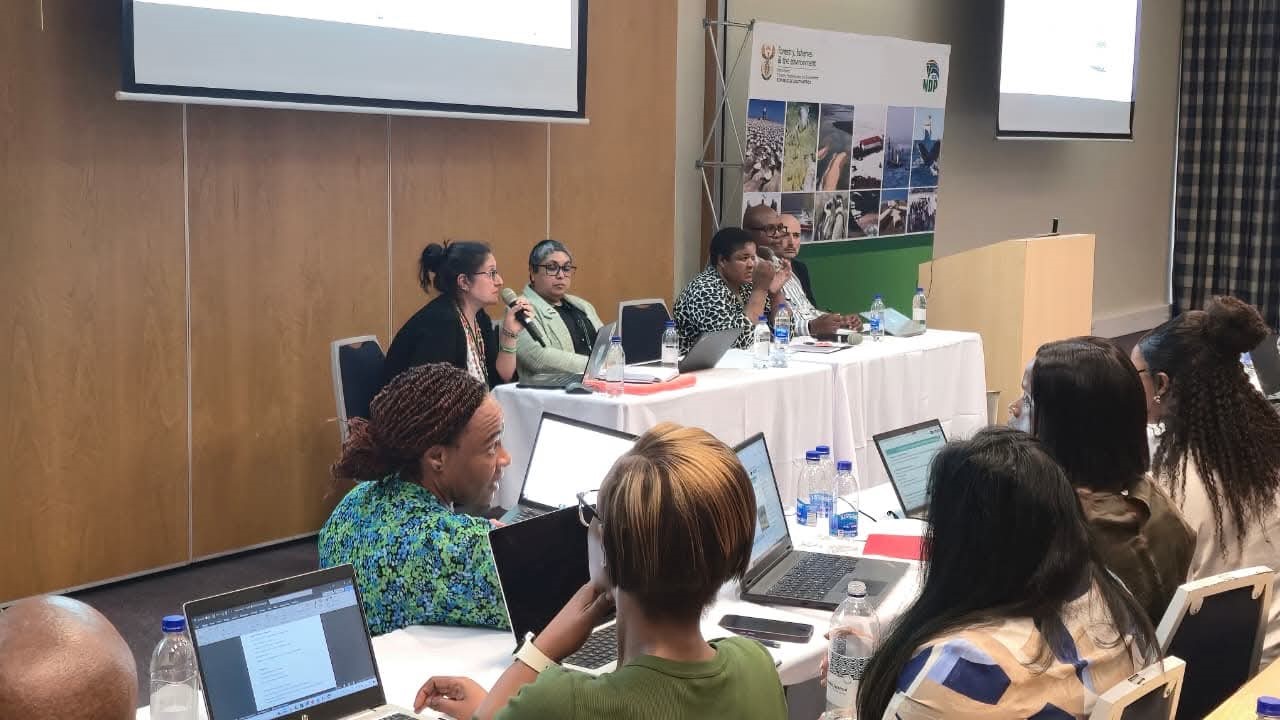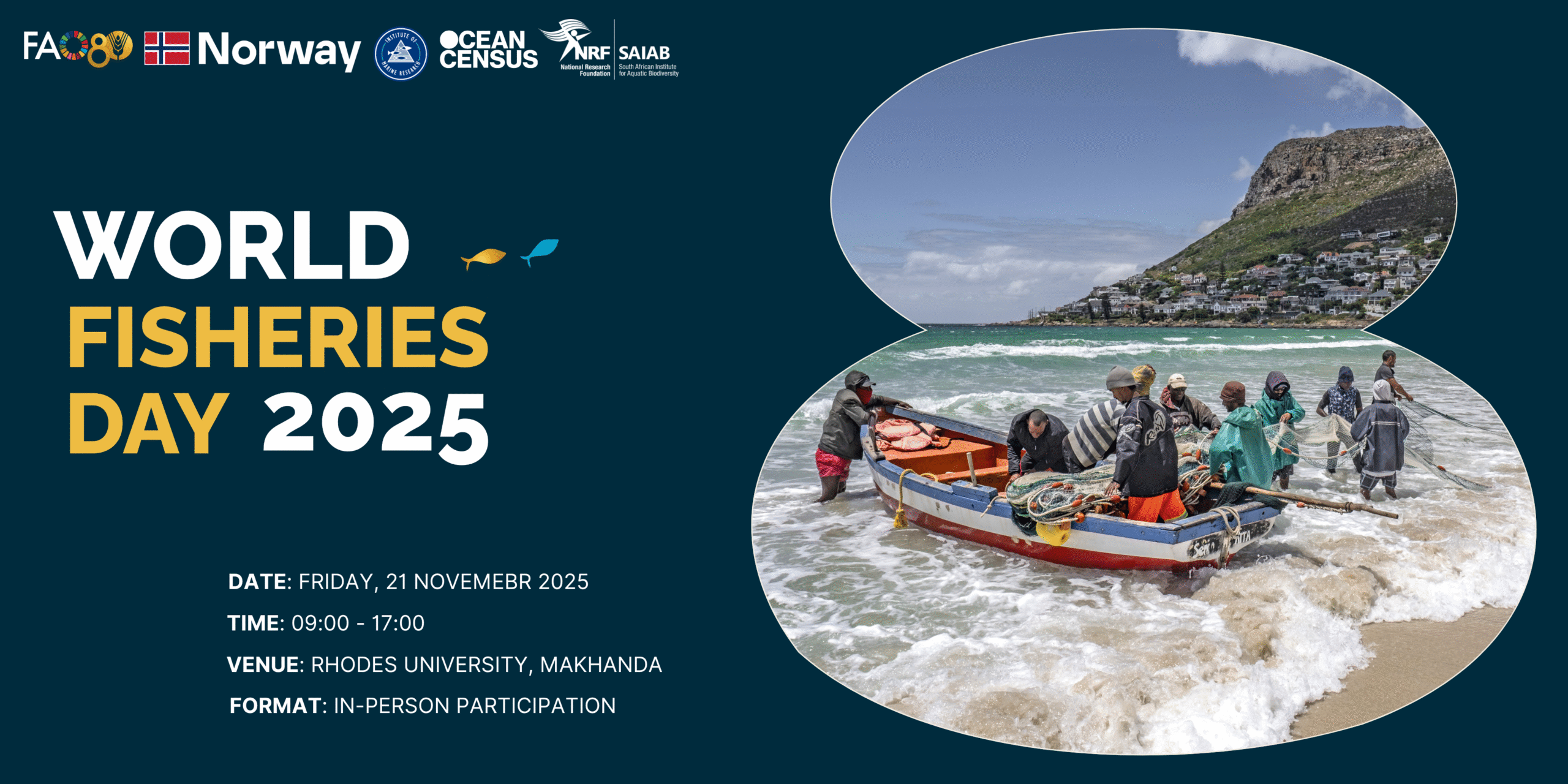– Lucky Dlamini (NRF-SAIAB Communications and Stakeholder Relations Manager)
The National Research Foundation (NRF) is celebrating a significant milestone in its history, marking its 25th anniversary since its establishment on April 1, 1999. As a statutory body mandated to promote and support research in South Africa, the NRF is reflecting on its contributions to the science system. Throughout the year of 2024 and the first quarter of 2025, the NRF and its National Facilities are hosting a series of events to honor its quarter-century of impact as South Africa’s premier science council.
On June 6th, NRF-SAIAB hosted a panel discussion as part of these celebratory events. The event attracted over 100 attendees coming from various sectors, including academia, government, and non-governmental organisations, as well as representatives from institutions such as Transnet and the South African International Maritime Institute (SAIMI). The panel discussion focused on NRF-SAIAB’s Joint Marine Laboratories Programme (JML) and its role in advancing marine research. Principal Investigators of the JML Programme discussed how four Historically Disadvantaged Institutions (HDIs) are transforming South Africa’s ocean research landscape through the DSI/NRF-SAIAB funded JML Programme. The discussion was centered on the topic, ‘Changing the Tides in Ocean Research, through Innovation, Research, and Partnerships.’
The event was not only a celebration of the NRF’s 25 years but also coincided with World Ocean Day on June 8th. World Ocean Day is an international day that catalyzes collective action for a healthy ocean and a stable climate. Given NRF-SAIAB’s position as an innovative leader in ocean research, contributing to the Biodiversity Economy and the Blue Economy, it was fitting to align this event with a significant environmental awareness day.
The event was co-chaired by Mr. Sazi Nzama, a current PhD student and beneficiary of the ACEP Phuhlisa Programme based at UNIZULU, and Prof. Francesca Porri, NRF-SAIAB’s Senior Scientist and environmental ambassador.
The event also featured two presentations after the discussion about the role of the ACEP Phuhlisa Programme in transforming the lives of young researchers. Miss. Zinzisa Nokwali and Dr. Ntuthuko Masikane shared their success stories. Zinzisa, a funding beneficiary of the Programme since 2014, reflected on the support she received throughout her academic career, including her first trip outside the Eastern Cape to Stellenbosch for a marine science conference which opened networking opportunities for her. She is now a Senior Laboratory Assistant and Junior Lecturer at Walter Sisulu University and contributes back to the Programme by mentoring and supervising ACEP Phuhlisa students.
Dr. Ntuthuko Masikane, was one of the first student beneficiaries of the ACEP Phuhlisa Programme, now serving as a supervisor within the Programme. He also joined NRF-SAEON’s Elwandle Node Programme in 2007 as an intern after completing his Honours degree. After earning his PhD that was supported through the ACEP Phuhlisa Programme, he returned to the Programme as a supervisor. Over his eight years of academic supervision, Dr. Masikane has supervised four MSc students, currently supervises four more (including two PhD students). He has also mentored various students who have advanced to prominent positions in governance, industry and academia, continuing to influence the science landscape and the National System of Innovation.
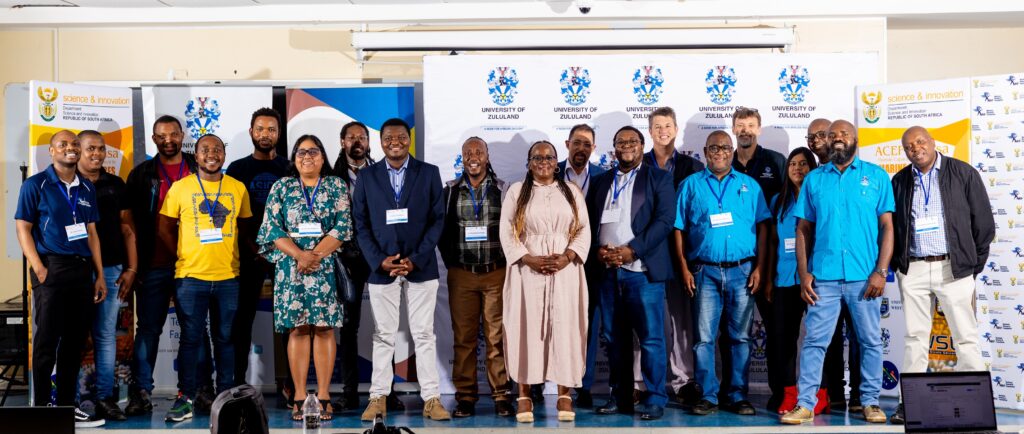
JML Programme
The JML Programme is a further phase of the ACEP Phuhlisa Programme, NRF-SAIAB’s flagship marine research initiative, which has made significant strides in marine science since its inception 24 years ago. Initially focused solely on supporting competitive, multidisciplinary, and multi-institutional marine research along South Africa’s east coast, ACEP now plays a crucial role in driving transformation and capacity building in marine science, especially at Historically Disadvantaged Institutions (HDIs). The JML Programme being the next phase, focuses on targeting sustainable development in the Blue Economy by establishing laboratories with world-class equipment at four Historically Disadvantaged Institutions (HDIs): Walter Sisulu University (WSU), University of Fort Hare (UFH), University of Zululand (UNIZULU), and University of the Western Cape (UWC).
The JMLP is designed to tackle crucial marine, social, and economic challenges in South Africa, including developing technical skills necessary for managing these research platforms. The programme’s concluded initiation was marked by the launch of the Rural Coastal Sustainability Laboratory at WSU’s Mthatha campus on January 24, 2024. This laboratory addresses challenges faced by rural communities, focusing on food security and climate change adaptation. According to Dr. Thembinkosi Dlaza, the Laboratory Principal Investigator, the laboratory conducts stress response experiments to determine the survival abilities of different marine species under changing seawater conditions, contributing to environmental change monitoring programs along the Wild Coast.
The other three laboratories, launched between 2022 and 2023, are located at the science campuses of their respective universities. Each laboratory addresses key challenges such as marine pollution and good health and well-being. The UNIZULU laboratory specializes in marine and estuarine ecotoxicology, quantifying metal concentrations in coastal environments and organisms. The UWC laboratory focuses on understanding microplastics to improve ecosystems, contributing to several United Nations’ Sustainable Development Goals such Goal 3 (Good health and well-being), Goal 6 (Clean water and Sanitation), Goal 13 (Climate Action), Goal 14 (Life below water) and Goal 15 (Life on land). The UFH Bio-economy & Bio-discovery Laboratory explores marine resources for potential applications in the marine pharmaceutical economy, targeting diseases like diabetes and cancer.
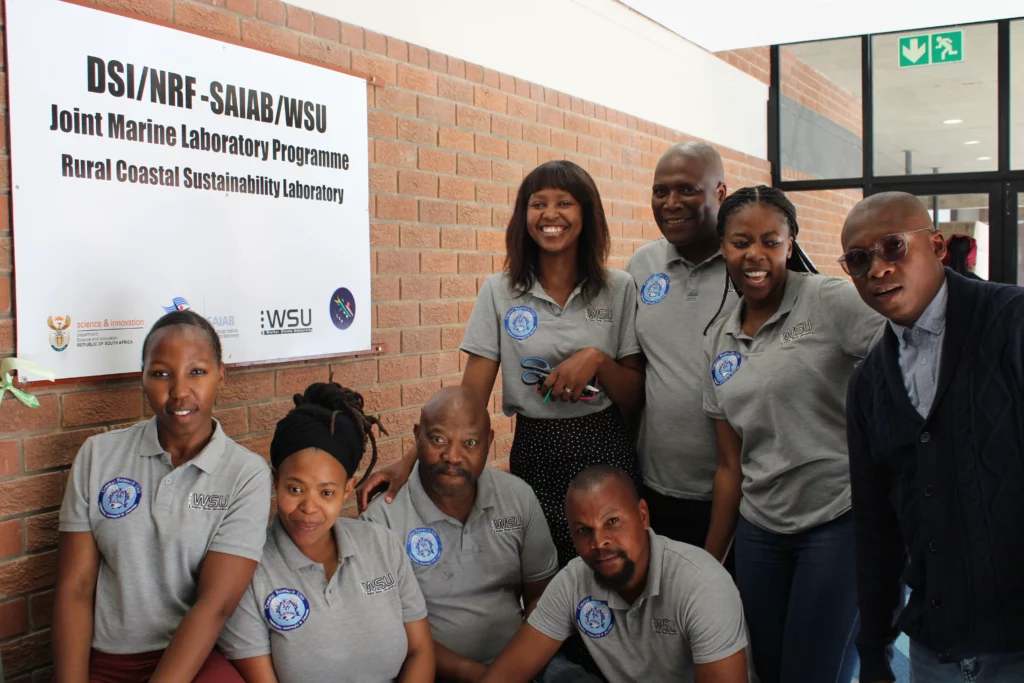
Together, these institutions form effective JML partners, collaborating on research and training initiatives for marine science students. The ACEP Phuhlisa and JML Programmes reflect transformative efforts in marine science, making ground-breaking contributions that reshape our understanding and promote effective stewardship of the oceans. As Prof. Albert Chakona, NRF-SAIAB Acting MD, once stated, “collaboration amplifies impact”, and this programme exemplifies the strong partnership between the HDIs which continues to solidify and transform the marine science landscape.
The Joint Marine Laboratories Programme (JML) Principal Investigators:
- Dr. Thembinkosi Dlaza
(Lecturer, Biological and Environmental Sciences) Walter Sisulu University (WSU) – and Principal Investigator for the Rural Coastal Sustainability Laboratory.
- Dr. Ntuthuko Masikane
(Senior Lecturer, Department of Zoology) – University of Zululand (UNIZULU) – and Principal Investigator for the Laboratory for Marine and Estuarine Ecotoxicology.
- Prof. Anusha Rajkaran
(Associate Professor, Department of Biodiversity and Conservation Biology) – University of the Western Cape (UWC) – and Principal Investigator for the Laboratory for Microplastics and Coastal Research.
- Prof. Graeme Bradley
(Dean, Faculty of Science and Agriculture ) – University of Fort Hare (UFH) – and Principal Investigator for the Bio-economy & Bio-discovery Laboratory.
